10. The King’s Speech
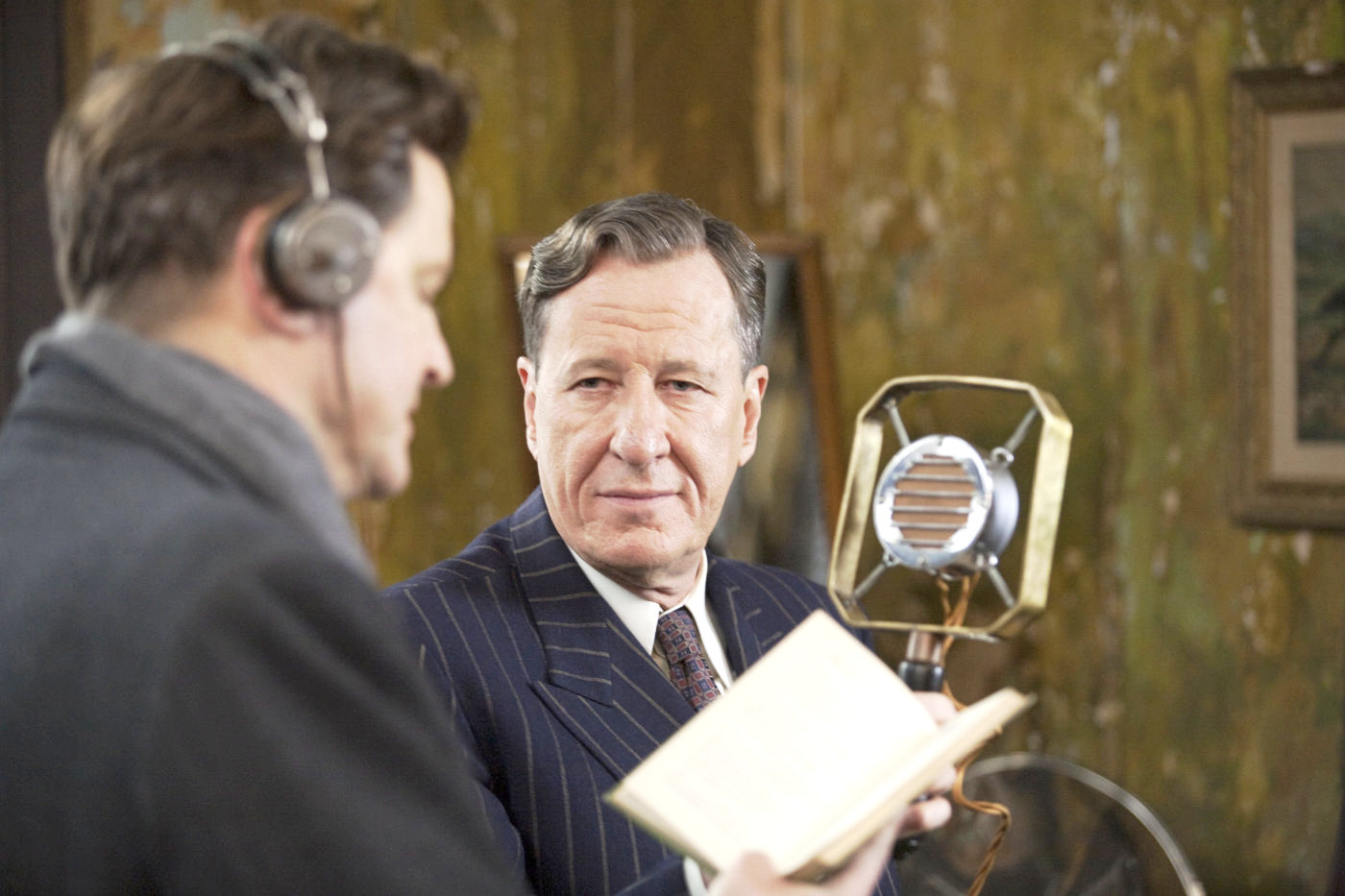
The King’s Speech is an example of a film that’s reputation may have been hurt by its Oscar win, as the film was largely seen as undeserving of its Best Picture win over David Fincher’s masterpiece The Social Network. No, The King’s Speech isn’t better than The Social Network, but it’s an utterly delightful film buddy story that goes in depth in its depiction of the British Royal Family. King George VI (Colin Firth) suffers from stammering and fears giving public speeches, and after his brother Edward (Guy Pearce) abdicates from the throne, he learns from the quirky speech therapist Lionel Logue (Geoffrey Rush).
Firth and Rush work brilliantly together; despite the fact that one is the leader of one of the world’s most powerful countries and one is a common man, they are equals as they work together to help George prepare a speech declaring war on the Nazis in 1939. Their interactions are humorous and heartfelt, and the real friendship makes for a great way to look at history. One of the best British films of the 2010s, The King’s Speech is a wonderful crowd pleaser.
9. Moonlight
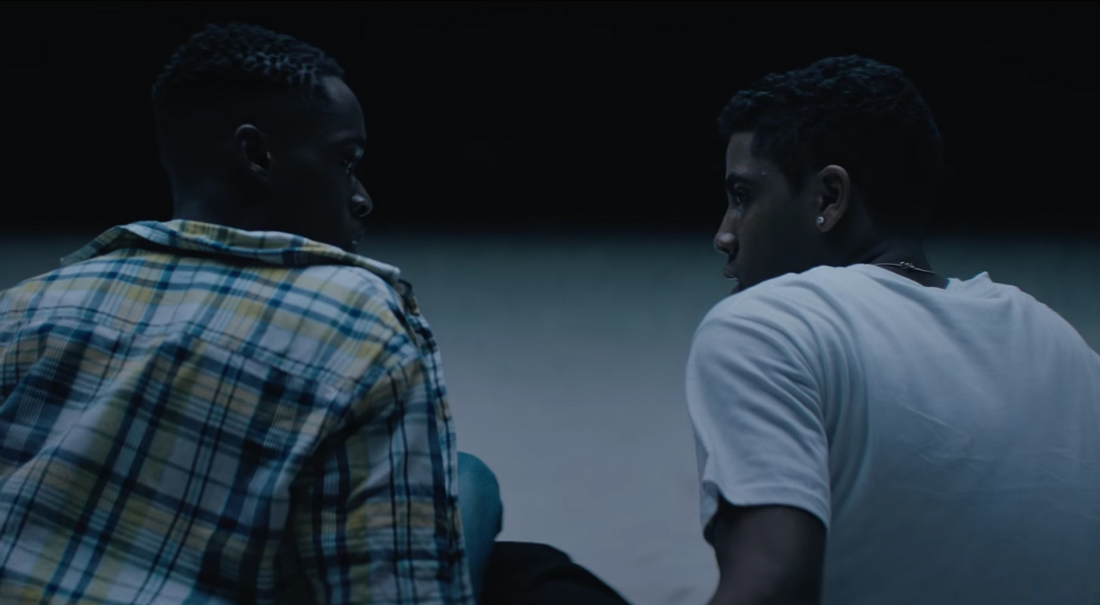
Moonlight definitely had one of the most notorious Best Picture wins of all-time, as it had a shocking victory after La La Land was mistakenly announced, but that shouldn’t detract from the fact that it is a monumental achievement in the history of cinema. The film was groundbreaking in its depiction of black masculinity, and how race, gender, and sexuality intersected to shape someone’s identity, made with gorgeous visuals and motifs from director Barry Jenkins.
Much of Moonlight’s brilliance comes from its structure; the film is told across three timelines, in which the main character comes to grips with his sexuality as a child, is mocked and strikes out as a teenager, and comes to reflect upon his growth as a young man. It’s a beautiful look at the fragmented nature of memory, and the film is graceful in telling these three distinct situations. 2016 was a great year for films that included Manchester by the Sea, La La Land, Arrival, and Hell or High Water, but it’s hard to not see Moonlight as a deserving winner.
8. Spotlight

The best journalism film since Shattered Glass, Spotlight is incredibly detailed in showing exactly how the journalistic process works, from the difficulty of finding sources that go on the record to accessing public documents to publishing material that will transform a community. The film is masterful in showing how each member of the staff has a different role in giving legitimacy to the story, with Liev Schreiber as the ambitious editor Marty Baron, Michael Keaton as the head investigator Walter Robinson, Rachel McAdams as the reporter Sacha Pfeiffer who interviews many victims, and Mark Ruffalo as reporter Michael Rezendes, who delivers the most powerful monologue in the film.
The film isn’t only a nuanced depiction of the nature of journalism, but a powerful way of giving a voice to survivors of sexual assault that shows the power and influence of the Catholic Church. The gravity of the investigation is never lost, particularly as the reporters discover that Boston is not an isolated incident and that the issue of pedophile priests is a global crisis. 2015 had one of the strongest Best Picture lineups of the 21st Century, containing such great films as The Big Short, The Revenant, Mad Max: Fury Road, The Martian, Room, Brooklyn, and Bridge of Spies, but Spotlight is certainly a powerful and important call to action.
7. The Hurt Locker
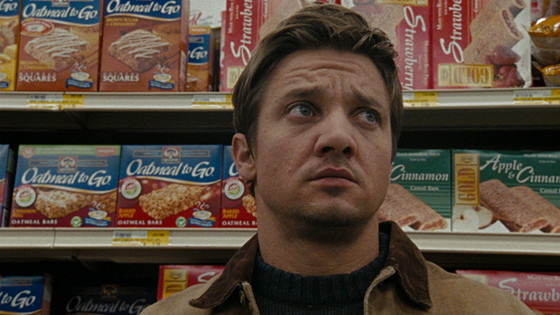
While there have been many films that deal with PTSD for combat veterans, The Hurt Locker has a unique approach in how it depicts war as an addictive experience for some soldiers. Kathryn Bigelow’s street level, intimate filmmaking places the audience right in the stressful situations alongside the characters, and the film manages to keep raising the anxiety as it goes along. Ending on a perfectly ambiguous note, the film combines fascinating wartime psychology with visceral action.
Jeremy Renner gave a breakout performance as Sergeant First Class William James, the maverick leader of an explosive disposal unit that embarks on many dangerous missions. Renner is able to be vulnerable in untraditional ways, as his character often places himself in dangerous situations in order to avoid adjusting to a normal life. It’s a masterful performance that anchors the film. Perhaps there were more deserving films in 2009, such as District 9, Inglourious Basterds, and Up in the Air, but it’s hard to argue with Kathryn Bigelow’s breakthrough win.
6. Birdman (or the Unexpected Virtue of Ignorance)
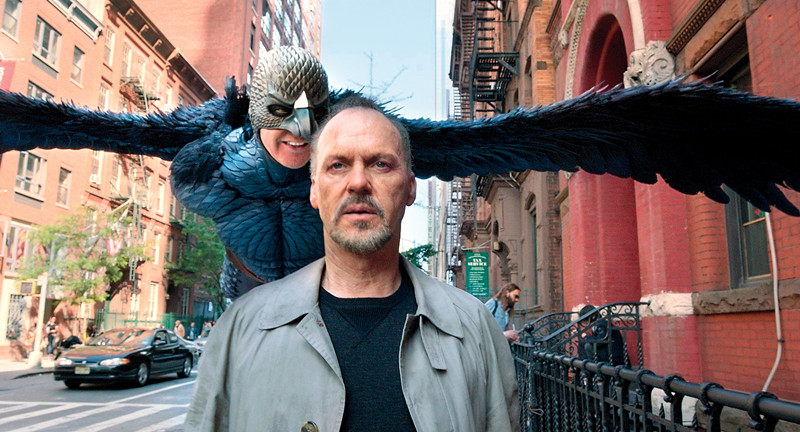
Birdman isn’t a surprising Best Picture winner, as not only does it serve as a commentary on the current state of the entertainment industry and the pressures artists face to inhabit their creations, but it is also a breathtaking technical marvel that uses cutting edge immersion techniques to make it appear as if the film is all told in one shot. This is a technique that has been used before in Alfred Hitchcock’s Rope, but Alejandro Gonzales Inarritu’s film is more than a gimmick, as it is all about getting inside the head of Riggan Thompson (Michael Keaton); the film is essentially a two hour internal monologue.
Thus, the brilliance of Birdman is that it isn’t a series of sarcastic musings as much as it is a means of self-realization for the main character; Thompson goes on may rants, shares his many thoughts on the nature of artistry, and clashes with both his daughter (Emma Stone) and the pretentious actor Mike Shiner (Edward Norton), and Inarritu isn’t absolving Thompson as much as he is asking the audience to understand his perspective. It’s caustically witty and ingeniously staged, and the genius of casting Keaton in a role that is self-referential cannot be overstated. Best Picture probably should have gone to Boyhood, Whiplash, or The Grand Budapest Hotel, but Birdman is a nice change of pace for the Academy.
5. 12 Years a Slave
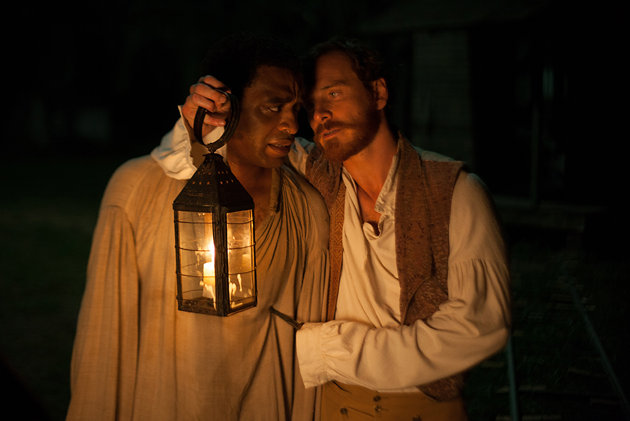
12 Years a Slave is a masterpiece. It’s easily one of the most difficult winners in history, and its unflinching depiction of slavery is downright required viewing for those that want to comprehend the scope of history. It isn’t a film that is trying to confine all of slavery into one story, however, as it is specifically about the journey of Solomon Northup (Chiwetel Ejiofer), a free man who was abducted and sold. Ejiofer is heartbreaking in his depiction of helplessness and trauma, and there are few screen characters as utterly terrifying as the brutal slave owner Edwin Epps (Michael Fassbender).
Director Steve McQueen is keen to depict all aspects of cruelty, showing how Epps installs a learned helplessness within his subjects and enjoys driving them apart; a sequence in which Epps forces Solomon to whip fellow slave Patsey (Lupita Nyong’o) to the point of near death is one of the most psychologically tormenting and gut punching moments of the decade. Sometimes awards bodies gravitate towards films for their message or importance rather than their quality, but 12 Years a Slave is both a brilliant cinematic achievement and an important summation of history.
4. No Country For Old Men
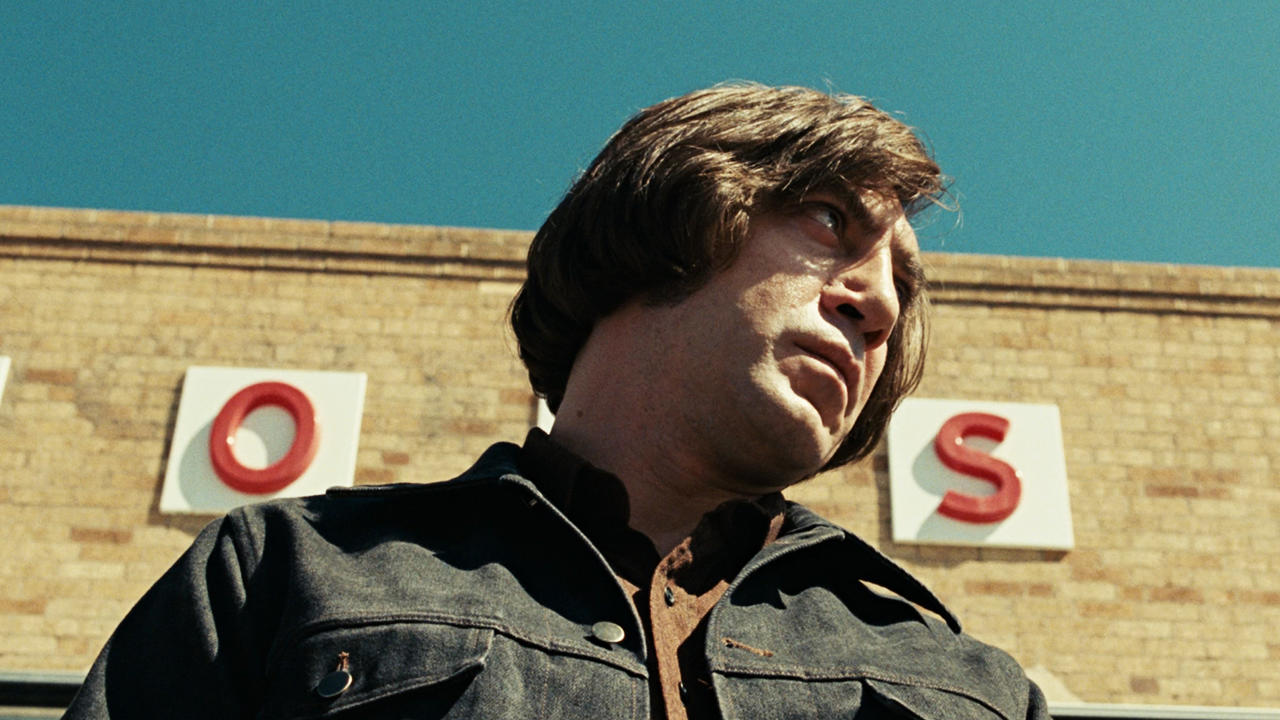
There is a legitimate argument to be made that the Coen Brothers are the best and most influential filmmakers of the generation, and No Country For Old Men is their masterpiece. The Coens tend to gravitate towards stories about the inherent cruelty of fate and the banality of human nature, and No Country For Old Men is their most stripped down and relentless work; there’s no slick wisdom or amusing anecdotes to hide the grimness of this situation, and there’s not a hint or irony in the film’s shocking violence. The subversion of western movie tropes is used to explore the tragic realities behind superficial evil and the mythology of an all-American small town.
As Anton Chigurh, Javier Bardem became one of the greatest villains in cinematic history; Chigurh’s logic is primal, and the Coens are methodical in showing the intricacies of his tracking and hunting process. Tommy Lee Jones is also phenomenal as Sheriff Ed Tom Bell, and as noted in his final monologue, he is unable to find a meaning to the cycle of violence that permeates the American west. No Country For Old Men was nominated the same year as There Will Be Blood, another breakdown of greed and power set in 19th Century America; both films were deserving of the Best Picture Oscar, and both are masterpieces.
3. Parasite

Parasite is groundbreaking in that it is the first film not in the English language to win Best Picture, but the story of class differences and the lure of wealth is timeless. What makes Parasite so brilliant is that it doesn’t depict the wealthy Park family as malicious or even wicked, but they are so removed from reality and so accustomed to having others be subservient that they reap the consequences of their own greed. Even as the audience revels at the creativity of the Kims and finds the humor in their deceptions, they’re still left to consider that these two families will never be seen as equals.
This is the brilliance of Parasite; not only is it the perfect embodiment of a global issue of inequity, but it’s a damn entertaining movie that is almost inconsiderably creative in how it realizes its ideas. Bong Joon-ho and his creative team designed the Park family home and all of the film’s sets from the ground up, and the precision to which characters enter and exit frames within this austere location is breathtaking in its fluidity. Parasite is a satire and a tragedy all at once, a source of rich thematic material that is pinned within a tight story where all the logic adds up. It will be studied and respected for generations of filmmaking.
2. The Lord of the Rings: The Return of the King

The Lord of the Rings trilogy is an unparalleled achievement in cinematic history. Not only is it the greatest film trilogy of all-time, but it’s one of the ambitious productions ever made; an entire world with distinct history and culture is brought to life, years of character interactions and relationships are considered, and the films explore warfare and political discourse through the eyes of innocent characters who are thrust into a great quest to retain balance and eliminate evil. It is somewhat embarrassing that it took three films for the Academy Awards to finally honor The Lord of the Rings in any major categories, but Return of the King was able to make up for lost time with its historic eleven wins, which tied the record with Ben-Hur and Titanic.
Return of the King ends the trilogy in an epic fashion; the epic battles at both Gondor and Mordor are among the biggest and most expansive in film history, and the weight placed upon Frodo to finish his quest and avoid the corruption of Gollum is never lost. The reunion of these beloved characters is extremely emotional, and the extended epilogue resolves early every question that is asked about this universe; Frodo and the hobbits return to their place of innocence in The Shire, and Aragorn is finally crowned King and fulfills his destiny. The Return of The King is only the second sequel to ever win Best Picture following The Godfather: Part II, and its historic wins reflect both its individual merit and the prowess of the entire trilogy.
1. The Departed
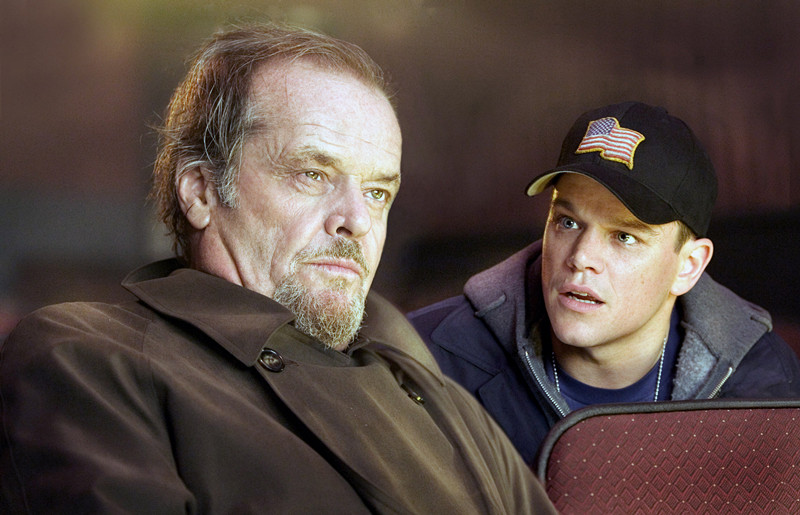
It remains shocking that it took the Oscars so long to finally reward Martin Scorsese, one of the greatest filmmakers in history. Scorsese never won for Taxi Driver, Raging Bull, Goodfellas, or his many other classics, but he finally took home Best Director and Best Picture for his crime epic The Departed. It’s hard to not see this victory as a means of honoring Scorsese’s entire filmography, but the Best Picture win is far more than a “career award.” The Departed is a slick, mean, and brilliantly staged cat and mouse game that creates many unforgettable characters, and it just may be the most consistently entertaining film of the 21st Century.
The Massachusetts State Police and the Irish Mob are both closing in on each other, as the cops have Officer Billy Costigan (Leonardo DiCaprio) undercover as an accomplice to mob boss Frank Costello (Jack Nicholson), and Costello has his protégé Colin Sullivan (Matt Damon) undercover as a high ranking police officer. Both groups are looking to come out on top, and as information is passed along, the bodies begin to stack up and greed begins to win out. It’s a film that showcases Scorsese’s ability to shock and subvert narrative, unfolding at a relentless pace that never strains the viewers’ attention across its 151 minute runtime.
There is much to be read into the way in which The Departed depicts Irish crime culture, and how controlling the environment is an integral aspect of Boston politics. Every character is vying to control their circumstances in one way or another, and the all-star cast brings each role to life with savage wit and a grim brutality. It’s perhaps the most plot heavy film of Scorsese’s career, and the momentum continues up until the film’s now iconic ending scene. It is one of the greatest filmmakers ever letting loose and having fun, and no other Best Picture winner this century is quite as uncompromisingly absorbing and enthralling.